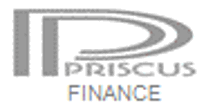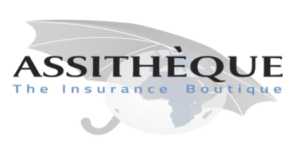Audit de Protocoles de Délégation
An audit of delegated authorities involves reviewing and evaluating the activities and responsibilities that have been delegated by an organization (a (re)insurance undertaker) to external parties (MGA, Coverholder, TPA,…), known as delegated authorities or agents. This type of audit ensures that delegated authorities (Binding Authorities) are fulfilling their duties effectively, efficiently, and in compliance with applicable regulations, standards, and contractual agreements. Here are some key aspects typically covered in audits of delegated authorities:
- Scope and Authority: The auditor examines the scope of authority granted to delegated entities and the specific responsibilities delegated to them by the organization. This includes reviewing delegation agreements, contracts, or appointment letters to understand the extent of the authority and the nature of the delegated functions.
- Compliance and Regulatory Requirements: The audit assesses whether delegated authorities are operating in compliance with relevant laws, regulations, industry standards, and internal policies. This involves reviewing regulatory filings, licensing requirements, adherence to legal obligations, and any regulatory inspections or audits conducted on the delegated entities.
- Risk Management: The auditor evaluates the effectiveness of risk management practices implemented by delegated authorities, including identification, assessment, mitigation, and monitoring of risks associated with delegated functions. This includes assessing risk management frameworks, internal controls, and risk reporting mechanisms to ensure that risks are adequately managed and mitigated.
- Performance and Quality of Service: The audit examines the performance and quality of services provided by delegated authorities, including the accuracy, timeliness, and completeness of deliverables. This may involve reviewing performance metrics, service level agreements (SLAs), customer feedback, and any relevant quality assurance processes implemented by the delegated entities.
- Financial Controls: The audit verifies the accuracy and integrity of financial transactions and reporting carried out by delegated authorities, including billing, invoicing, payment processing, and reconciliation processes. This involves reviewing financial records, invoices, receipts, and other relevant documentation to ensure compliance with accounting principles and internal controls.
- Conflicts of Interest: The auditor assesses whether delegated authorities are managing conflicts of interest appropriately and maintaining independence in their decision-making processes. This includes reviewing conflict of interest policies, procedures for disclosing conflicts, and mechanisms for mitigating conflicts when they arise.
- Governance and Oversight: The audit evaluates the organization’s governance and oversight mechanisms for monitoring and supervising delegated authorities. This includes assessing the effectiveness of governance structures, oversight processes, reporting mechanisms, and escalation procedures for addressing issues or concerns related to delegated functions.
- Training and Competency: The auditor examines the training and competency requirements for individuals appointed to delegated roles, ensuring that they possess the necessary skills, knowledge, and qualifications to perform their duties effectively. This may involve reviewing training programs, certification requirements, and competency assessments conducted by the organization or delegated authorities.
- Complaints and Dispute Resolution: The audit assesses the handling of complaints, disputes, and grievances related to delegated functions, including the mechanisms for receiving, investigating, and resolving complaints from customers, stakeholders, or regulatory authorities.
- Continuous Improvement: Finally, the audit identifies opportunities for enhancing the efficiency, effectiveness, and oversight of delegated authorities through process improvements, performance optimization, and governance enhancements. This involves gathering feedback from stakeholders, benchmarking against industry best practices, and recommending corrective actions or enhancements to the delegation framework.
Overall, auditing delegated authorities helps organizations ensure that delegated functions are being managed effectively, risks are adequately controlled, and regulatory requirements are being met. It provides assurance to stakeholders that delegated entities are fulfilling their obligations and operating in alignment with the organization’s objectives and expectations.






